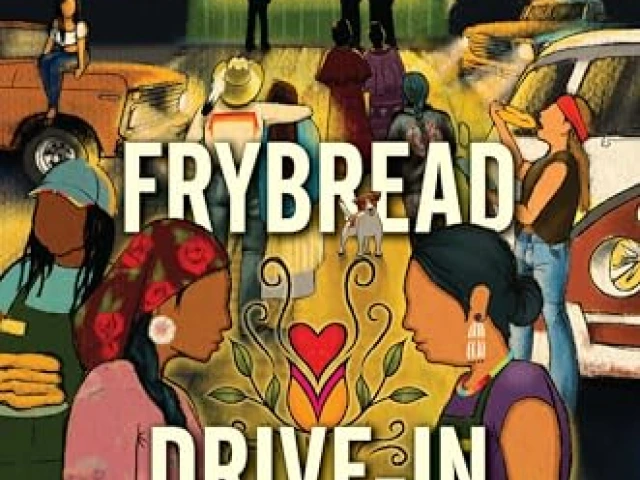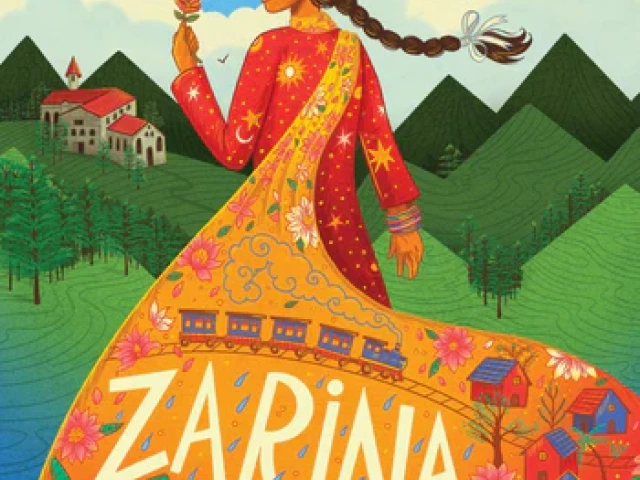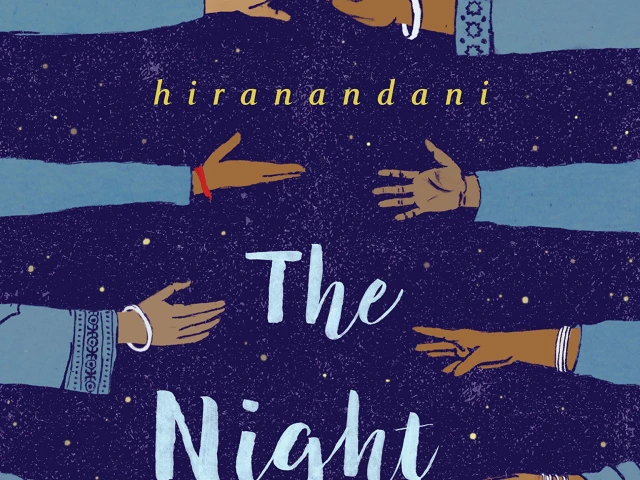Developing Intercultural Competence with OIBs, Part 1: Becoming Curious
This last year I had the joy of serving on the USBBY committee for the 2019 list of Outstanding International Books (OIB). I loved every minute of reading around 450 titles that came from around the world. What could be better than a good book that stretches my mind and my emotions? So, this month I want to add on to the WOW Currents piece from February in which fellow committee member, Janelle Mathis, shares titles that intrigue her.
I will profile more of the 2019 titles by focusing on ways in which the books can support the development of intercultural competence--the ability to move between cultures well. I selected one characteristic of intercultural competence each week, pairing it with outstanding international books that can provide examples (or non-examples) of the characteristic.
The first characteristic is curiosity about the world, and that includes curiosity about a lot of things! It is one that goes beyond what is known as the "Fs" of culture (the external things we look at when thinking about different cultures): food, fashion, festivals, famous people and flags. The curiosity of an interculturally competent person centers more on discovering the values and beliefs that make people do what they do. Below are both works of fiction and nonfiction. The first embeds that curiosity in a story; the second presents information in a fascinating way that makes us want to know more.

Astrid the Unstoppable, written by Maria Parr from Norway One character who exhibits an exuberant zest for life and a curiosity that brings on lots of adventures is Astrid the Unstoppable. Nine-year-old Astrid lives in Glimmerdal, a rural area of Norway, and, as the title suggests, takes on life at top speed. She loves nothing better than racing down the hills of her village on anything that slides singing Old MacDonald at the top of her lungs. Her life is quiet compared to her energy level, surrounded by loving parents and a 74-year-old best friend in Gunnvald, a grumpy neighbor who is also her godfather. Her world changes when a family with children and a mystery woman move into town. Astrid makes quick friends with the kids, and together they are curious and determined to find out the story behind the woman and her connections to Glimmerdal. A story that is full of fun, it also communicates Astrid's heart as she asks questions about family and friendship and fiercely works to protect her loved ones and community.
On the Other Side of the Garden, written by Jairo Buitrago from Mexico and illustrated by Rafael Yockteng from Colombia Buitrago and Yockteng team up once again to deliver another powerful story about dealing with life. In this book, a young girl is left at her Grandmother's house for an indeterminate amount of time. She barely remembers her grandmother so is understandably upset. As she goes to bed, she is visited by three creatures from outside: an owl, a frog and a mouse. They invite her outside for a walk in the garden. The animals' friendly spirit along with all their questions spur the girl on to trust them and begin exploring her new home. The illustrations communicate the increasing comfort level of the girl with her new friends and the wonder of the night walk. Her curiosity is piqued as she spends the night exploring, sharing her feelings with her new friends, and together watching the night sky. As the sun rises she returns to her grandmother and begins to tell her adventures. The story concludes with an inventory of all the plants and animals she has discovered.
Up the Mountain Path, written and illustrated by Marianne Dubuc from Canada Mrs. Badger walks from her burrow up to the top of the mountain every Sunday. Along the way she collects objects that pique her curiosity and teach her about life on the mountain: nests, branches, shells, etc. One morning she sets off as usual, greeting friends along the way, but when she stops for a snack she senses she is being watched. A little cat is curious about the mountain and wants to hear all about the top of the world. Mrs. Badger coxes Lulu to come along, teaching her about animals and plants along the way, and encouraging her when the little cat wears out and needs a rest. Eventually they reach the top and savor the mind-blowing view. The following week and every Sunday after that, the two walk the mountain path together until Mrs. Badger has to stay at home and Lulu becomes her eyes, telling her the stories of her weekly discoveries.
In a gentle and quiet style, Up the Mountain Path addresses facing tasks that seem impossible and doing things that encourage exploration, like finding the perfect walking stick, or answering Lulu's questions about the mountain. It also positions exploration as worthwhile and mind-blowing when Lulu speculates, "It must be wonderful to be at the top of the world," and Mrs. Badger answers, "Oh, it makes you feel really small." She then adds poetry to her description: "Small as a speck of stardust shimmering on the morning dew." The text makes me want to go explore a mountain top!
What a Wonderful Word, written by Nicola Edwards from England and illustrated by Luisa Uribe from Colombia Great nonfiction is an obvious tool for developing curiosity about the world. The OIB list has amazing titles that are real page-turners both in content and illustrations! One of my favorites is about fun but untranslatable words. What a Wonderful Word profiles 15 words that require a paragraph to explain how they are used to express things like feelings, describe the climate of the day or explain the social bonding of hair grooming! Some of the words profiled are fun because they are so different from my lived experience. For example, the next time I am in northern Finland (where there are lots of reindeer), I can say "poronkusema" to express a measurement of distance. The measurement used is the distance a reindeer can walk before needing to use a reindeer bathroom (about 4.7 miles).
Not all the words in the book deal with curiosities like reindeer habits. They also deal with common emotions that we all experience. Ishq is an Arabic word describing "a perfect love without jealousy or inconsistency that holds two people together" (pp. 36-37). Another is hiraeth, a Welsh word meaning the "nostalgic longing for a homeland or past" (pp. 52-53).
The author and illustrator point out that untranslatable words are beautiful because they teach us something about the wonderful human mix as people in each language try to describe things that are important for daily life (like distance) or emotions that we all feel.
From the Heart of Africa, collected by Eric Walters from Canada and illustrated by 15 artists from Africa, Europe and North America Africa suffers from what I call "lump disease," in which the whole continent often gets lumped together as a whole. Texts that explore the incredible diversity within the continent are a treasure. From the Heart of Africa is one book that does a wonderful job of exploring a single theme (wisdom) but from many named (and therefore un-lumped) perspectives. Eric Walters is a prolific and award-winning Canadian author who has spent years traveling and working between Kenya and Canada. One of his hobbies is collecting aphorisms (pithy sayings of wisdom) and he collected them in a book. He carefully gives credit to each person, group or tribe who shared their words of wisdom, and the sayings come from all over the continent. The illustrations of the book reflect the same diversity. Each double-page spread is illustrated by an artist from the continents of Africa, Europe or North America.
In an author's note and preface, Eric and Dr. Femi Kolapo (a professor of African history) explain the value in an oral culture of wisdom sayings. Aphorisms help people understand issues and make decisions. This collection demonstrates the common wisdom that is found around the world in sayings, art and stories.
Next week—a new characteristic and more great books!
Journey through Worlds of Words during our open reading hours: Monday-Friday, 9 a.m. to 5 p.m. and Saturday, 9 a.m. to 1 p.m. To view our complete offerings of WOW Currents, please visit archival stream.



